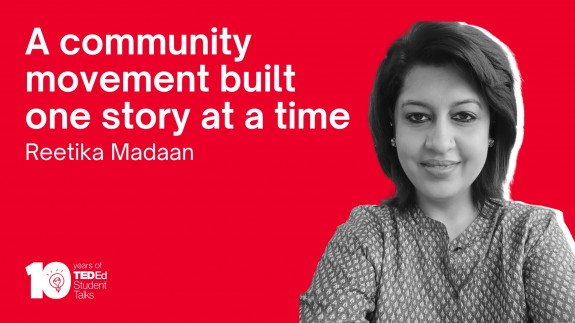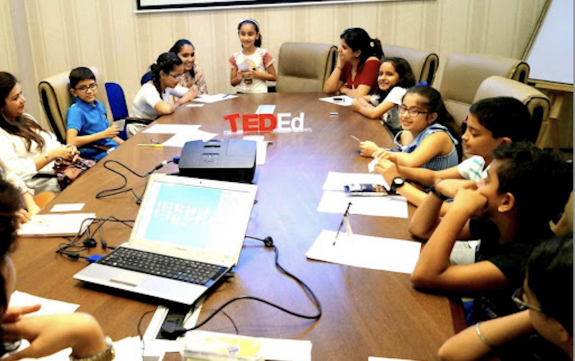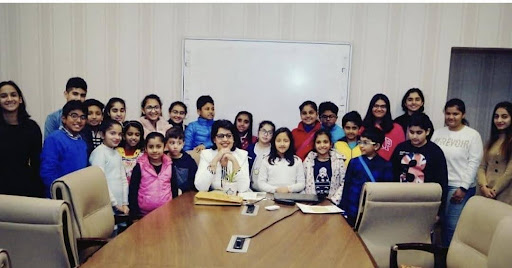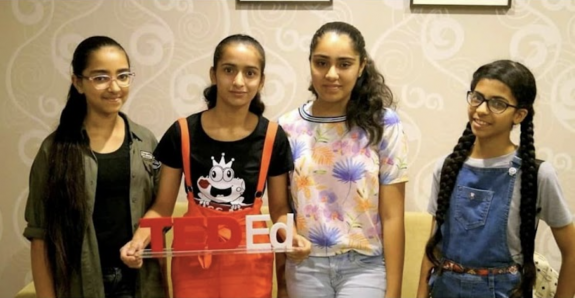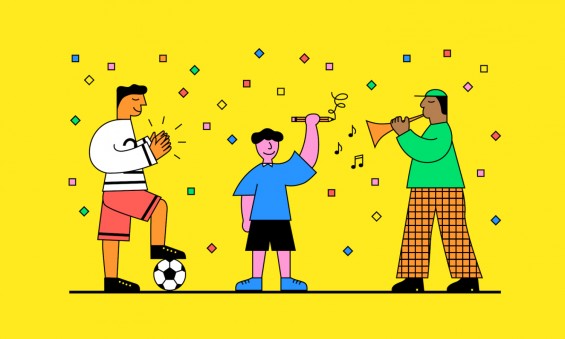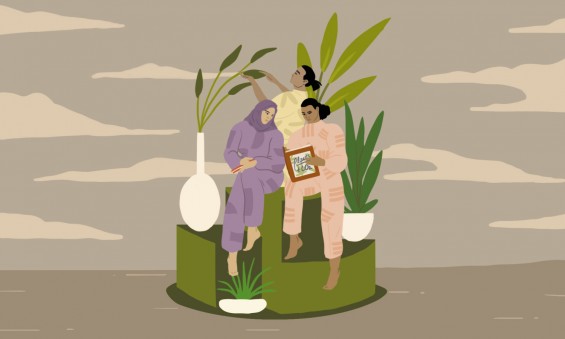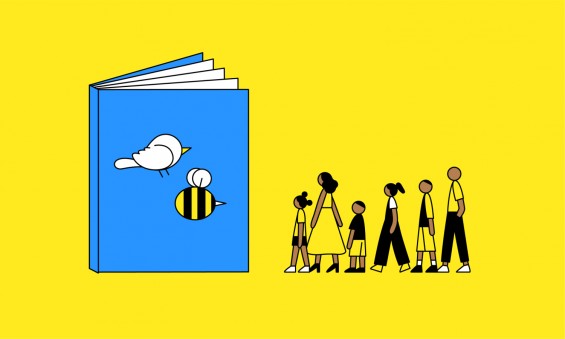
A community movement built one story at a time: A conversation with Reetika Madaan
Since 2014, thousands of student groups across the globe have been developing and sharing their ideas using our free TED-Ed Student Talks resources. To celebrate 10 years of TED-Ed Student Talks, we have been collecting stories of impact from the program’s facilitators as part of our “10 for 10 years” series.
For this installment of the series, we are highlighting Reetika Madaan, an independent educator and Student Talks facilitator for nearly a decade.
Here, she speaks with TED-Ed’s Programs Manager, Sasha Rudenko, about the challenges of building a program from the ground up outside of a school, gaining the trust of parents and the community, and how to support and believe in student voices:
Sasha Rudenko (SR): Tell us a bit about your role and what students you serve.
Reetika Madaan (RM): I’m an independent educator, communication coach, and community builder. I don’t represent any school in Ludhiana. I represent a city which was full of students ready to be heard. In 2016, I started TED-Ed Club Ludhiana — not because I was asked to, but because I saw the gap. Students had ideas, but there was no space for them to express them beyond academics and their annual functions. And when I saw this coming up across the board, I decided to build that space from scratch. There was no school backing, no grants, just a vision to start something with the students. And today, the club is a thriving city-wide platform. We’ve had multiple annual showcases, we’ve trained over 50 speakers from 15 schools across the city, and they’ve even been TEDx speakers.
SR: How did you implement the Student Talks program? How did it fit into what you were already doing in the community?
RM: I do many things alongside the TED-Ed Student Talks group. I’ve represented student youth projects at World Economic Forum, as I’m part of their Global Shapers Community. I have collaborated with state governments for skills and entrepreneurship training. When we started with TED-Ed, parents loved the personalized approach — that it wasn’t just a curriculum, which was not happening in schools. And that’s why I think its reach, credibility, and goodwill has increased every year. Ludhiana is a growing city, with lots of young people. With the popularity of social media, they all want to do things aside from academics day and night. They want playful learning activities. So I feel that I’ve brought a lot of that to Ludhiana through these programs and my passion to start new things.
“I made sure every student left with more than a talk. They left with belief. That’s how you build something lasting.”
SR: There are probably many moments since you began in 2016, but could you share any standout moments from your time leading this program?
RM: It has to be curating TEDxSarabhaNagar. Two of my TED-Ed Club students — Rayaansh Pahwa and Amaya Sahni — took the stage on the big red dot. I didn’t just train them. I stood beside them as they practiced, doubted, rewrote, and, ultimately, soared. Rayaansh challenged the rigidity of education with his talk on travel. Amaya moved the room with lessons she had learned at just age 11. That night, I wasn’t just a facilitator. I was a witness to transformation. Which was the very reason I started all this.
SR: As a facilitator since 2016, you’ve seen a couple iterations of our curriculum over the years. What skills would you say that students improve the most going through the Student Talks activities?
RM: Yes, the curriculum has changed over the years. I remember when I started, the curriculum was just a few pages. Then, slowly and steadily it became a playbook with questions and answers, all beautifully visually described and with lots of ideas on how to engage [with the students]. With every curriculum and with every personalized touch that we gave to our students, they not only became more confident, but became stronger. It was not just on the stage, but in life too. They were given the freedom to talk, and so their thinking has become much more layered, more research-oriented. There was a lot of risk-taking, but the outcomes were beautiful.
SR: What would you say was the most challenging part of implementing the program, and how did you overcome it?
RM: The hardest part? Being an outsider. Starting with no institutional power. No school bell to ring. Just intent. When I started, it began with sessions of just three children. I documented impact, got parents involved, and eventually had schools reaching out to me. So that starting 3 students built to 25, then to 30, and then to 40. We made sure to get parents involved because one of the challenges was dropping students off at a place outside of school. But when their parents saw them doing the exercises and improving every week, that’s where we got our credibility. Then the parents began speaking about us, how much work we were doing each week, and then the schools started reaching out. I made sure every student left with more than a talk. They left with belief. That’s how you build something lasting.
”When they see that you care more about their story than their stage time, that’s when the real growth begins.”
SR: From your vast wealth of experience, what advice would you share with someone who is considering bring Student Talks to their students?
RM: To facilitators, I’d say encourage students to tell us what others don’t know about you. Have tough conversations with your students that allow them to talk about what they love and what they want to explore aside from academics. Help them get over pretending like they don’t need to care about something. Then the framework is there for the students to have those tough conservations with their friends or family. Be patient. Be personal. Be persistent. Your students are watching how you listen. When they see that you care more about their story than their stage time, that’s when the real growth begins. To parents, I’d say give your kids independence, or else they will not be able to have their own thoughts or speak about them. And to not expect kids to be miraculously great public speakers overnight. There is a lot of pressure on these kids already, and building skills takes time.
Interested in learning more about TED-Ed Student Talks? Check out our Student Talks page here to find out how the program works and how you can get involved.
Check out the other pieces in the 10 for 10 years series here.
